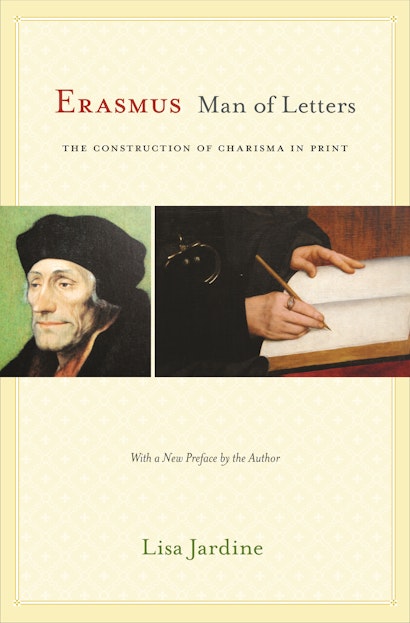Erasmus, Man of Letters: The Construction of Charisma in Print - Updated Edition


Paperback
- Price:
- $23.95/£20.00
- ISBN:
- Published:
- Jun 23, 2015
- Copyright:
- 2015
- Pages:
- 304
- Size:
- 6 x 9.25 in.
- 28 halftones.
- Main_subject:
- Philosophy
ebook
The name Erasmus of Rotterdam conjures up a golden age of scholarly integrity and the disinterested pursuit of knowledge, when learning could command public admiration without the need for authorial self-promotion. Lisa Jardine, however, shows that Erasmus self-consciously created his own reputation as the central figure of the European intellectual world. Erasmus himself—the historical as opposed to the figural individual—was a brilliant, maverick innovator, who achieved little formal academic recognition in his own lifetime. What Jardine offers here is not only a fascinating study of Erasmus but also a bold account of a key moment in Western history, a time when it first became possible to believe in the existence of something that could be designated “European thought.”